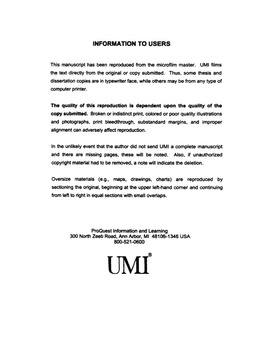| dc.contributor.advisor | Badhwar, Neera K., | en_US |
| dc.contributor.author | Singleton, Thomas Jackson, Jr. | en_US |
| dc.date.accessioned | 2013-08-16T12:18:47Z | |
| dc.date.available | 2013-08-16T12:18:47Z | |
| dc.date.issued | 2002 | en_US |
| dc.identifier.uri | https://hdl.handle.net/11244/517 | |
| dc.description.abstract | To defend itself, a liberal democracy should promote three virtues: solidarity, tolerance, and reflective obedience. Each helps avoid the conditions Plato fears. Solidarity builds a sense of community to overcome factionalism. Tolerance allows one to determine what should be prohibited and what (although objectionable) should be allowed. Reflective obedience provides the grounds for obeying the law for reasons other than prudence or coincidence (i.e., the felicitous agreement between one's moral beliefs and the law's prescription) while preserving individuality by outlining a mechanism of resisting on the grounds of conscience. | en_US |
| dc.description.abstract | Plato warns that every democracy will eventually devolve into a tyranny. His reasons for the fall appear to play a role in the decline of the Roman Empire; the upheavals in France from the rule of Louis XIV through the Republic, Napoleon, and the Restoration; and the transition in Germany from a monarchy through a republic to the Third Reich. Similar conditions are evident in their initial forms in the U.S., and these conditions are gross misunderstandings of freedom and equality. More specifically, many have forgotten that freedom cannot be unlimited and that not all ideas are equally valuable. | en_US |
| dc.description.abstract | These three virtues are not independent but intimately related. Solidarity is the foundation for the other two, which can be developed fully only in conjunction with solidarity. | en_US |
| dc.format.extent | iv, 135 leaves ; | en_US |
| dc.subject | Toleration. | en_US |
| dc.subject | Obedience. | en_US |
| dc.subject | Philosophy. | en_US |
| dc.subject | Solidarity. | en_US |
| dc.title | Democratic virtues: Solidarity, tolerance, and reflective obedience. | en_US |
| dc.type | Thesis | en_US |
| dc.thesis.degree | Ph.D. | en_US |
| dc.thesis.degreeDiscipline | Department of Philosophy | en_US |
| dc.note | Source: Dissertation Abstracts International, Volume: 63-10, Section: A, page: 3591. | en_US |
| dc.note | Adviser: Neera K. Badhwar. | en_US |
| ou.identifier | (UMI)AAI3067109 | en_US |
| ou.group | College of Arts and Sciences::Department of Philosophy | |
